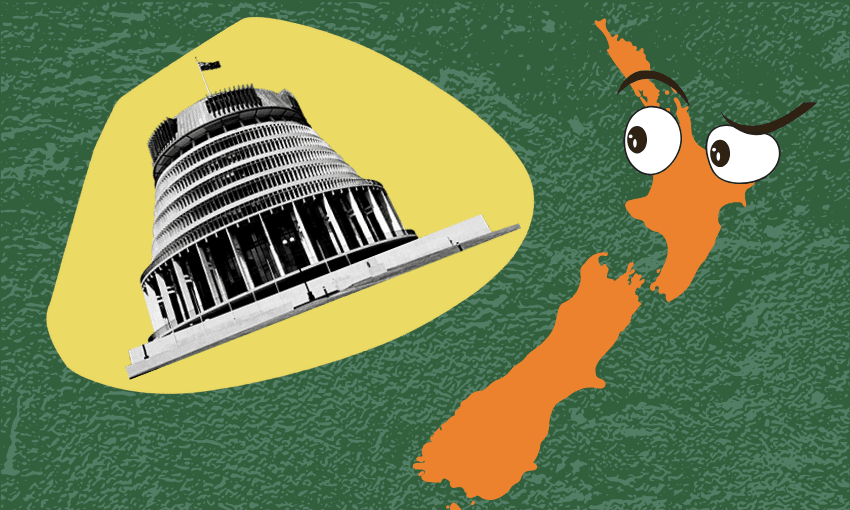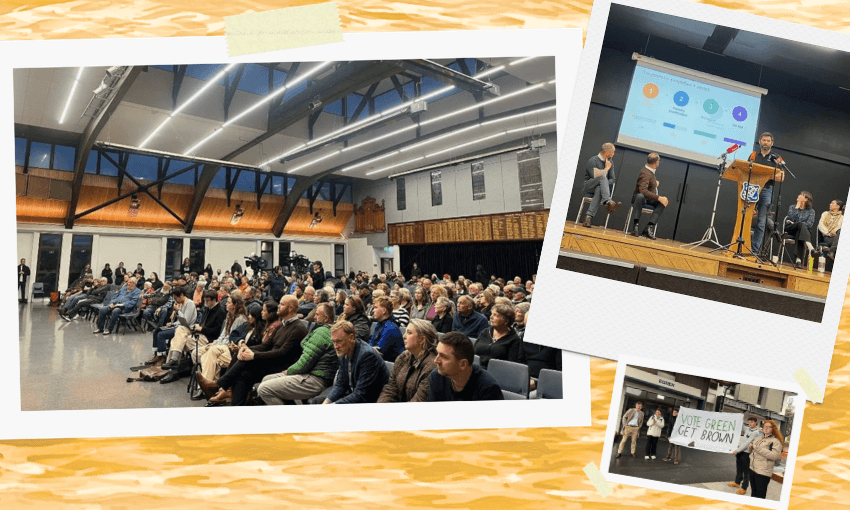Is it as bad as has been suggested? Probably not. But how do we ensure the current weather of distrust doesn’t become a climate of toxic disaffection?
A few years ago, trust in New Zealand’s government was higher than at any other time in the last 35 years. Why, then, do we hear so much about a “crisis” of political trust? Obviously, trust matters: it is the glue that holds society together. Communities become dysfunctional when people cannot, as a rule, rely on their neighbours to behave predictably. Business transactions become near impossible without a basic assurance that others will follow ethical norms. And a populace can become ungovernable if it no longer trusts those doing the governing. This is not to say that full trust is desirable: surveys showing 100% confidence in government are a mark of authoritarian, dissent-suppressing dictatorships. Some measure of distrust is healthy. But very low trust is corrosive.
To see what that looks like, cast your eyes over the calamitous decline in the number of Americans who trust their government, now numbering just 20%. No wonder so many Americans are willing to back Trump.
New Zealand’s situation, however, is very different. In a master’s thesis published in February, Victoria University student Oliver Winter compiled data from surveys dating back to the early 1990s. What they show is a long-term increase in trust.
By 1999, New Zealanders were – as other surveys at the time make clear – reacting to 15 years of often undemocratic change carried out by governments intimately entwined with big business interests. But the introduction of MMP, and Helen Clark’s ability to hold corporate interests at a greater distance, helped restore some measure of confidence.
A slight decline in trust may have occurred under John Key, before trust spiked – as it did in many other countries – during the early days of the pandemic. The equivalent charts for parliament and the courts – equally important political institutions – show a similar, indeed slightly more positive, long-term trend.
This story comes, however, with two big caveats. The first is that the rise has been from a low base. The second and more serious caveat concerns the last few years: a return to pre-pandemic levels of (dis)trust can be seen even by 2023, and the data since then has only worsened.
The Edelman Trust Barometer survey, carried out late last year, shows a continued decline in trust. Relatively little weight should be placed on New Zealand’s underperformance versus the rest of the world, as Edelman surveys just 28 countries with wildly varying political setups.
More worrying is the fact that, as indicated by the circled numbers at the base of the blue bars, trust has continued to fall in all major institutions, and in the case of government is now below 50%. The slight downward trend detected in Winter’s work appears to have accelerated.
What is going on? Scholars in this area distinguish between weather and climate: changes in trust can be short term, transient responses to current events, or they can represent a shift to a permanently different environment.
It is plausible that New Zealand’s current decline in trust is just a form of weather. Evidence for this argument would include the lingering effects of the pandemic (which may well fade with time), the cost-of-living crisis (already easing, though certainly not over), and the confidence-sapping decline in the performance of our education and health systems (serious but eminently solvable problems).
Much angst has also been created by successive governments’ failure to fix apparently intractable economic problems, including crumbling infrastructure, rampant house price inflation and unchecked oligopolies. But current moves – including tentative steps towards bipartisan infrastructure investment, rezoning of large swathes of land for housing densification, and threats to break up the supermarket duopoly – hold out the promise of these problems being addressed.
We would not want, however, to put too much faith in such arguments. Distrust is not driven solely, or even mainly, by governments’ failure to deliver. Research suggests it is greatly amplified by economic disparities, which rightly lead the poor to believe that the rich have everything locked up, and people’s sense of not being heard by decision-makers. This entwining of poverty and political exclusion can be corrosive.
In a 2022 OECD survey, trust in parliament was 60% among financially secure New Zealanders, but only 40% for people struggling to pay their bills. Relatedly, just 35% of the poorest New Zealanders felt they “have a say” in political decisions. Across the whole country, barely one-third of us believed that if we took part in consultations, state agencies would listen.
So what would ensure the weather of distrust doesn’t become a climate of toxic disaffection? As a recent OECD report put it: “People need to feel trusted by the government in order to trust it.” The same report produced evidence that the most trust-enhancing reforms are those that ensure citizens’ voices “will be heard”.
That requires us to tackle the corrosive intersection between poverty and political exclusion: lifting living standards for the worst-off, clamping down on the channels (notably lobbying and political donations) that allow vested interests to convert money into power, and – above all – doing government differently. We need to bring politics closer to the people, giving citizens greater opportunities to be meaningfully engaged in shaping political decisions.
That could be as simple as doing consultation better – early enough that people’s input can shape the final result rather than being a tick-box exercise, and with officials going to the venues – shopping malls, sports clubs and so on – where people already are, rather than expecting people to come to them. It could also involve things like citizens’ assemblies, where representative groups of ordinary people are brought together to debate and find solutions to issues on which conventional politics has become logjammed, or participatory budgeting, in which local councils put up a proportion of their infrastructure budget for the community to discuss and allocate.
Either way, there is no need yet to panic about trust. We start from a much higher basis than many other democracies. We do not yet have hard evidence that we are in a permanently new climate of distrust rather than just a localised depression, to use the meteorological term. As the economist Shamubeel Eaqub has said in a recent report on social cohesion, we are “fracturing, not polarised”. But that still points to a country heading in the wrong direction, even if not yet arrived in the darkest place. We cannot be complacent.





